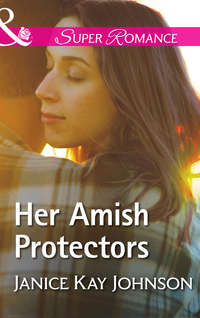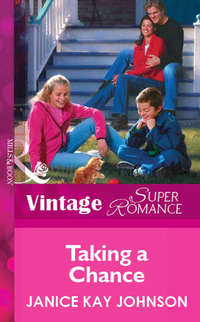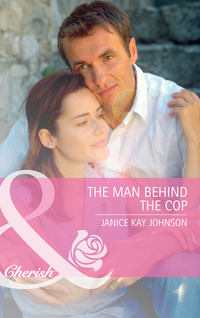
Полная версия
Yesterday's Gone
That was just creepy.
The corner of his mouth twitched. Frankenstein’s monster, she wasn’t.
He had been tempted to take her home and cook dinner for them, but had had a suspicion she wouldn’t like that. Plus, this might be their last chance to go out in public without being noticed.
So he’d taken her to a local diner with high-backed booths and asked for the one in the far corner. Once the waitress led them to it, he didn’t give Bailey the choice. Instead, he slid in with his back to the wall facing the room and the door. It would have been his preference anyway, but what he liked tonight was that no one not standing right in front of their table would see her face.
After they ordered, she looked at him with big, clear eyes that were more gray than blue in this lighting.
“Eve wasn’t thrilled by my appearance.”
He’d been waiting for this one, and found himself in a spot. He’d silenced a call from Eve on the drive here from the hotel. He’d have to talk to her, if only to tell her he wouldn’t be calling again. An uncomfortable conversation he’d been avoiding. The last time they’d had dinner was almost three weeks ago. He’d been taking the coward’s way out, hoping she’d clue in to his waning interest.
He’d made no promises and had nothing to feel guilty about, except that it was damn awkward to have these feelings for Eve’s sister.
“I noticed that,” he admitted. “In a way, I’m not surprised. What did surprise me was that she didn’t hide how she felt.”
“Her parents were really taken aback.”
“I was glad Eve wasn’t there when Karen said that about the two best days of her life.”
“Because they were both associated with the real daughter,” Bailey murmured. “The one who doesn’t remember them and isn’t sure she wants to be bothered to get to know them.”
The one, he suspected, who didn’t want to admit she hungered for family.
“You knew Eve, too?” she asked.
He hesitated. “She and I dated for a while. I actually became interested in your disappearance after hearing the story from her.”
“Really.” It was as if he’d confirmed something she had already guessed. “‘Dated.’ Past tense?”
“Uh... I haven’t called her in a few weeks. It was never more than casual.”
She scrutinized him for an unnerving moment. “I shouldn’t have asked. It’s none of my business.”
Sure it is. His reaction was immediate and powerful. Seth didn’t share it.
“I don’t blame her if she resents me,” Bailey continued, sounding thoughtful. “When you first mentioned her, I couldn’t help thinking, So they replaced me. I’d have resented her, if I cared. You know.”
He knew. She had felt a pang of resentment she refused to acknowledge.
“When Eve first told me the story,” he said, “she sounded offhanded about it. ‘Here’s something out of the ordinary.’ I don’t think it crossed her mind I’d go anywhere with it, even though she told me because she knew I regularly work cold cases. Once I dug into it...” He hesitated, then shrugged. “She didn’t want to talk about it anymore. If I asked a question, she’d claim she didn’t know anything. Some bitterness may have been building...” He frowned. “I was going to say because her parents were suddenly obsessed with their loss again, but that isn’t really what happened. The truth is, I doubt an hour has passed in the last twenty-three years that Karen and Kirk didn’t think about you. They’d quit talking about it, that’s all. Until I gave them hope.” He grimaced at his choice of words. “Sorry.”
“I think I could hate that name.” Her voice was sharp. “It’s sappy. And, God, so wrong, considering what happened. And so wrong for me.” She pointed her thumb at herself. “The me I am.”
“Who are you, Bailey Smith?” he asked softly.
Her gaze clashed with his. “I’m not a nice person, in case you haven’t already figured that out. I don’t make close friends. I don’t have boyfriends.” Her warning was clear. “Don’t trust people.” Her tone curdled. “I am what he made me.”
Speaking of bitterness.
“That’s not true,” he said calmly, reaching for a roll, tearing it open and buttering it.
Her chin jutted. “You don’t know.”
“You enrolled in college. Did he have a single thing to do with making you the woman who’d do that?”
“My major. There’s nothing subtle about that.”
“No, I guess there isn’t. You’re trying to figure yourself out. Maybe him. But he wouldn’t have liked you doing either, would he?”
She finally looked away. “No. But my interest is because of him.” She didn’t have to say how much she hated knowing that. “If it never happened, if I’d grown up here as sunny Hope Lawson, who knows? I’d have probably gone off to college at eighteen and majored in literature or biology or dance. But psychology?” She shook her head.
“You’re right,” he agreed. “You’re a more complex person than you would have been. I won’t argue with that. Given what happened to you, I think it’s remarkable what you’ve become.”
“And what’s that?” she asked, the edge present.
“A smart, self-aware, poised woman who may claim she isn’t nice, but who was kind today to two people when she didn’t have to be.”
“Of course I had to be,” she grumbled.
He looked past her. “Dinner is coming,” he said quietly.
The diner did decent American basics—burgers, steaks, fries, onion rings, roasted chicken. He’d been glad she didn’t order one of their salads, which he felt sure came mostly out of a bag. He could be wrong, but he didn’t see her as a waitress at Denny’s or anyplace like that. With her looks and air of class, she could make a lot bigger bucks at someplace upscale.
Once their meals were in front of them, he asked about her job, thinking it might be a good idea to dial back the tension.
Of course he’d never heard of the restaurant, but it sounded expensive. “Do you get free meals?”
A surprised smile curved her mouth. His heart skipped a couple of beats.
“Of course I do. One per shift. Saves me a lot on the groceries, plus their food is really good. And I love Italian.”
“Me, too.” He glanced down at his steak. “Unfortunately, Stimson does not boast a fabulous Italian restaurant.”
She chuckled. “Nothing wrong with a hamburger.” She took a big bite of hers.
He couldn’t remember the last time he’d dined out with a woman who ate with gusto. And red meat and French fries, no less. Apparently she didn’t worry too much about her weight. Not that he saw any reason she should.
She got him talking about the town and what it had to offer, seeming intrigued once Seth admitted he hadn’t grown up here.
“City life isn’t for me. I like to hike and I enjoy white-water rafting. I run to stay in shape and would rather not have to pound the pavement or go to the gym.”
“Do you ski?”
“Alpine on occasion—lift tickets aren’t cheap. Otherwise Nordic. We don’t get a lot of snow at this elevation, but we don’t have to drive very far to find it.”
She exercised at a gym. “Actually, the university, now. Saves me having to pay a membership. I do the elliptical, treadmill, swim laps. And most semesters I take a phys ed class. I like to try different things. Spring semester, it was African dance. Which turned out to be really good for the thighs,” she said ruefully.
He laughed.
Their conversation was starting to feel as if they were on a date. When she suddenly scowled at him, he wondered if she’d had the same thought and was fighting it.
“What makes you think you know me?” she challenged. “Smart, self-aware, poised. Kind?” She said it as if the very idea was ludicrous.
He swirled a fry in ketchup. “You denying any of that?”
“Yes.”
“Which part?”
“I’m not kind. I’m...oh, I suppose I’m mostly a decent person. I mean, I don’t go out of my way to slap people down. But I don’t go out of my way to extend a helping hand, either.” She glared as if to say, How dare you put that label on me?
Seth didn’t let himself smile. “We’ll see,” was all he said.
Her eyes narrowed, but she abruptly shifted gears. “You said my... Karen was a teacher. Elementary or high school or what?”
“Kindergarten.”
Looking stricken, she breathed, “Oh.”
“You were about to start first grade.”
“How...awful.”
“That’s safe to say.”
He stayed quiet, letting her process what he guessed was a real hit: her first true understanding of what losing her had done to them, the couple she didn’t want to say were her parents.
“And Eve? Do you know what she does?” She tilted her head. “Of course you do, since you had a relationship.”
“Calling what we had a relationship is a stretch.” He tried to sound mild. Easier because he and Eve had never made it to bed. Thank God they hadn’t. He’d known she was willing and, at first, he’d fully intended to take her up on it. And why not?
He had a sharp, unsettling realization. I saw Hope’s face, the woman she would be if she had lived to grow up. That’s why not. God. Eve had had good reason to resent his sudden, obsessive interest in the sister who must have haunted that house. Today, he’d had trouble making himself meet her eyes. He hoped she hadn’t noticed the way he was looking at Bailey.
He grimaced. Yeah, what were the odds of that? Of course she’d noticed.
“What’s that face you’re making?” Bailey looked wary. “You don’t want to tell me what she does for a living. Why?”
“No, I don’t mind telling you. I had a passing thought, that’s all.” An epiphany. “She’s a social worker with DSHS. Washington State Department of Social and Health Services. She oversees kids who are dependents of the court.”
“Foster children,” Bailey said slowly.
“Some of them. Some she supervises in their own homes, making sure the families are showing up for counseling, keeping their kids clean, not abusing them.”
She gave a funny laugh. “I suppose she majored in psychology.”
“I don’t know. She has a master’s degree in social work from UW.”
“And me, I still have another year just to get my BA.”
“Bailey.” He waited until she was looking at him. “She’s a year younger than you, but she had advantages you didn’t. She had parents who put her through college. She didn’t have to earn her own way. She had support.”
After a moment, she nodded.
“You do have something in common. She lived in foster homes for several years before your parents took her in. All I know is that her mother died, but I don’t get the feeling her life was any picnic before that, either.”
“So on that watershed day, the seesaw flipped.” And she sounded flippant when he knew she felt anything but.
“You know it isn’t that simple.”
“Kinda seems that way.”
“It was three more years before your parents took in Eve.”
She scowled. “I wish you’d quit calling them that.”
“Your parents? Why? They are.”
“Were.”
“Ah.”
The scowl morphed into a glower. “What’s that mean?”
He gave into impulse and took her hand again. “It means I get it.”
“Does it mean you’ll quit calling them that?” She tugged to get her hand free, but half-heartedly.
“I’ll try,” he said. “No guarantee.”
“Great,” she muttered.
He smiled, squeezed her hand and let it go. “Hey, you want dessert?”
“Are their pies as good as they look?”
“Why do you think I come here?”
He hadn’t seen many of her smiles yet, but he especially liked this one.
“Of course I want dessert.” She pushed away her plate, only a few fries uneaten. “I don’t suppose you’d like to have breakfast with us tomorrow.”
Despite the tone that said, Of course I’m not serious, he felt a glow of warmth beneath his breastbone. She might deny it, but she wanted him at her side in the morning.
“I wasn’t invited,” he pointed out.
“I noticed.” She sighed. “And I know I have to do this. It’s just...” After a moment she shrugged. “Will you think I’m even more of a coward if I confess I hope your Eve isn’t there?”
“Not my Eve,” he said curtly, then frowned at his own vehemence. Damn, he had to call Eve. “And no, I don’t blame you. I doubt she will be. She’ll understand they want time with you. To get to know you, and...” He hesitated.
“Stare at me?”
His mouth quirked. “Probably. I was going to say, to rejoice.”
“Fine,” she finally said. But then she looked at him, dead serious. “Will you be masterminding the press conference?”
“Yes.”
“Can we, um, talk about it?”
“Yeah.” He waited until they’d both ordered pie and the waitress was walking away before he took her hand again. “Here’s the plan.”
She held on tight.
CHAPTER FOUR
“I OWE YOU an apology for yesterday. I mean, for bolting the way I did,” Bailey said first thing the next morning, after arriving at the Lawsons’ house.
Kirk looked at her kindly. “We understood.”
He had a good face, craggy and lined, and his eyes... I have his eyes, she thought in shock.
“Of course we did,” Karen hastened to add, but less believably. More than Kirk, she made Bailey uneasy. Maybe mother and daughter had been closer than father and daughter. It did make sense. But also, before coming to Washington for this reunion, Bailey had searched online for the original newspaper articles about her disappearance. She knew that she’d been at a swimming lesson at the high school pool, open all summer for community use. That particular day, Karen had decided to run some errands during the time rather than watch. She’d been held up at train tracks while a very long freight train passed, making her a few minutes late. When she arrived at the high school, most of the kids who had taken lessons at the same time were gone with their parents. Others had arrived for the next set of lessons, but nobody had seen Hope. Not struggling with a man, not waiting, not so much as leaving the dressing room although she had apparently changed, because the locker she’d used was empty and her swim bag had disappeared, too. And Karen Lawson had to have struggled for twenty-three years with the knowledge that, if only she’d stayed to watch the lesson, her child wouldn’t have been abducted. If only she’d started back to the high school two minutes sooner, she’d have crossed the tracks before the train came by, and would have been there to meet her daughter in the dressing room.
If only.
Bailey hadn’t had any reason to feel guilt; she didn’t get close enough to people to let them down. But she understood the concept, and if only had to be the most damning of phrases.
“Please, come in and sit down,” Karen said. “Breakfast is ready.”
“Is Eve here this morning?”
“She let me know last night that she couldn’t make it,” Karen said over her shoulder. “Work, I’m sure.”
Relieved though she was, Bailey had to wonder if Eve had really felt welcome. Or did she feel as if she was extraneous to this small nuclear family, now that Hope was home again?
No, they’d probably talked after Bailey fled yesterday. The Lawsons seemed like nice people. They wouldn’t sideline their adopted daughter.
And really, what is it with me? Bailey thought with incredulity. So, okay, she was majoring in psychology. That didn’t mean she usually bothered analyzing everyone else’s secret motives or wounds.
The dining room was as perfect as the rest of the house. Old-fashioned, as if it hadn’t been updated in a while. Say, twenty-three years. But nice, with an antique china hutch, table and chairs, a big tatted doily in the center of the table with a vase of orange, daisylike flowers, and a Persian-looking rug on the hardwood floor.
They sat down to a spread that widened Bailey’s eyes. Gorgeous crepes with perfect, red raspberries ready to spoon over them along with luscious Devonshire cream, crisp strips of bacon and a selection of other fruits, all beautifully presented. Karen must have worked for ages.
“Oh, this looks lovely,” Bailey made herself say with a smile. The same one she gave diners at Canosa. “As nice as anything I’ve ever served.”
Karen beamed and handed Bailey the crepes. “I remembered how much you loved raspberries.”
Did I? Bailey couldn’t actually remember the last time she’d eaten one. They were awfully expensive at the grocery store. But she kept the smile pinned in place and said, “I still do.”
And then came the questions. Did she remember how much fun they’d had picking raspberries? No. The county fair—she’d always looked forward to it so. She wasn’t the slightest bit afraid of heights! Did she remember...? No. She’d begged for horseback riding lessons, and they’d finally found a place to take her that summer. Did she remember...? No.
Bailey’s throat grew tight. She smooshed a raspberry with her fork rather than take a bite she wasn’t sure she could swallow.
Karen opened her mouth again, and Kirk laid a hand on her arm. Out of the corner of her eye, Bailey saw his slight shake of the head.
“Detective Chandler says you machine-quilt,” she said brightly. “I’d love to see what you’re working on.”
Karen forced a smile. “I’ll show you after breakfast. We were lucky to have four bedrooms. Neither of us had any use for a home office, like people all seem to have these days. This way I can close the door on all my mess.”
“I don’t even have one bedroom,” Bailey heard herself saying. “Mine is a studio apartment. Rents are high in LA. I’ve been tempted to buy a Murphy bed, so I could put it up when I’m entertaining, except—” she was winding down “—well, I don’t entertain very often.”
“You have a bedroom here.”
Her stomach twisted. A bedroom that had been kept as a shrine for twenty-three years. The idea creeped her out.
“Do you remember anything at all?” Karen begged.
She set down her fork. “The bedroom. I know it’s weird, but I remember the bedroom.”
The face of this stranger who was her mother lit with happiness. “I’m so glad we didn’t change it, then.”
“I’m not six anymore,” she said, sharper than she’d meant.
The happy expression froze, then slipped away. It was like watching death happen, and Bailey felt like a crummy human being. See? she wanted to say to Seth. I’m not kind.
Smart she’d give him. She’d found her college classes easier than she’d expected. Poised...maybe.
“I’m sorry,” she said. “I shouldn’t have said that. This is...” She moved uncomfortably. “I guess it’s harder than I thought it would be.”
“No,” Karen said with dignity that surprised Bailey for some reason. “I was pushing you. It’s difficult to accept that the daughter we missed every day of her life doesn’t remember us at all.”
“I’m hoping it will come back.” Am I really? She honestly didn’t know. “He didn’t want me to remember. So I have this kind of mental block. But...maybe the memories are still there, on the other side of it?”
Some of the happiness bloomed again on Karen’s face. The one that looked so much like Bailey’s, unsettling her. She’d never had what other people took for granted, the ability to think, It’s Mom’s fault I have skin so ridiculously white I burn whenever I step outside, or, It’s not my fault I can’t carry a tune in a bucket, it’s Dad’s. Other people could make a face and say, My family is cursed with freckled redheads, but her, not a clue who to credit or blame for the thousands of bits and pieces that made her up.
Except for him. She’d spent a lot of time wondering about the nature versus nurture thing. How much was his fault? Maybe she’d been abused at home, too, which made her easily trained by him. At that point she always felt sick. Had she been dumb enough to let herself be lured by him, or had he taken her forcibly? Why hadn’t she run away from him? She still didn’t know.
Now, at least she could say, I have my dad’s eyes and Mom’s cheekbones. And my mother’s smile. Seeing it made her skin burn and feel too tight.
She could hardly wait to get out of here. But this was why she’d come. To meet these people, to get to know them, open the possibility of some kind of relationship, if they still wanted one when they found out how truly messed up she was. Mostly she didn’t mind being alone, but there were times, like the holidays, when she listened to other people complaining about family and buying gifts that probably got returned or tossed in a drawer, and she’d think, At least you have somewhere to go. The Neales invited her every year, but they’d had a lot of foster kids since her. Going to their house, she’d have felt like a ghost from Christmases past, chains rattling.
Say something.
“Was I horse crazy?” was what popped out.
It was that easy. A question now and again, and she heard all about her childhood. Listening was surreal. Her life sounded like something out of a storybook, as if nothing had ever gone wrong, nobody had ever argued and Hope had mostly gotten her heart’s desires, including a “princess” bed.
No wonder I was in shock, she thought. Maybe...maybe she had quit believing in that perfect childhood. It must have seemed as unreal as Disneyland. A phantasm. Maybe, to survive, she’d had to quit believing.
She noticed that Kirk didn’t say much. About all he did was murmur agreement when his wife said, Do you remember when...? Those steady blue eyes stayed on Bailey. Seth had told her Kirk was quiet, but she began to suspect he was more sensitive to her mood and discomfort than Karen was.
Finally, he laid his hand over Karen’s to prevent another spate of reminiscences. Although she looked startled, she also closed her mouth. He cleared his throat. “There’s so much we don’t know, Bailey. Can you tell us what happened?”
As if the air had been sucked out of the room, she suddenly couldn’t breathe. It took everything she had not to leap up and say, “I’ve got to go.” But years of therapy paid for by the state of California had brought her to a point where she knew to breathe deeply and clear her mind before she did or said anything. Be calm. You don’t have to do this.
She shook her head. “I don’t like to talk about it.”
“Oh, but—”
Once again, Kirk’s big hand gently stopped his wife’s outburst. Bailey found herself staring at that hand. It filled her vision to the point where she didn’t see their faces. Why a hand? That hand? Don’t know.
“Detective Chandler said you spent years in foster care,” he said.
Not the best part of her life, either, but this she could talk about. She wrenched her gaze from Kirk’s hand.
“Six years. I didn’t know how old I was, so we guessed. I aged out of the foster care system when we thought I was eighteen. As it turns out, I’d have been only seventeen.”
Pain showed on a face rough-hewn enough to almost be homely. “Did you have a good home?” he asked.
“I...actually was moved several times.” More like seven or eight times, but who was counting? “I was pretty traumatized at first. I hardly spoke at all. He... I was way behind in school.” Yep, eleven years old and she had kindergarten under her belt. “Of course they had no idea what was wrong initially. They put me in special ed classes, but I picked things up so fast, I was back in regular classrooms after about a year. I must have already been reading pretty well when—you know.”
Tears in her eyes, Karen nodded. “You were reading at a second-grade level after kindergarten.”
Bailey nodded. “I kept reading. Books, when I could get my hands on them, or newspapers or just about anything. And I watched TV, so I knew about politics and crime—”
Both flinched.
“Not a clue about multiplication tables,” she said lightly. She hadn’t had a clue about so many things. “I’d never had a chance to use a computer.” She shrugged. “But, like I said, I adapted fast. The first few years were hard, though.”








